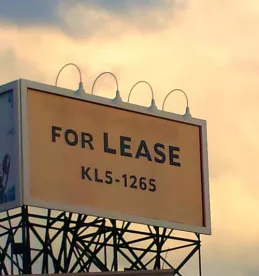As the consequences of the COVID-19 outbreak continue to hit our economy, it is crucial that commercial landlords and tenants are aware of possible options for rent or other relief under any existing leases for commercial properties in Texas. The pandemic has certainly caused disruptions preventing commercial tenants from satisfying their lease obligations, including the payment of rent. This article will discuss the law of force majeure and the impossibility of performance in Texas and how it might apply to commercial lease obligations disrupted by the pandemic.
Force Majeure Provision
Under Texas law, whether a tenant has an argument for rent relief is a fact-specific analysis based upon the negotiated terms in a lease. If the lease contains a force majeure provision, the parties should review it carefully and be guided by it. The term “force majeure” generally refers to an event, such as an “act of God,” beyond the reasonable control of the parties to the lease that intervenes to create a contractual impossibility and thereby excuses performance under the lease. See Virginia Power Energy Mktg., Inc. v. Apache Corp., 297 S.W.3d 397, 400 (Tex. App.—Houston [14th Dist.] 2009, pet. denied). Under Texas law, an “act of God” usually will not relieve a party of its obligations under a lease unless the parties thereto expressly provide otherwise by including an applicable force majeure provision. See, e.g., GT & MC, Inc. v. Texas City Ref., Inc., 822 S.W.2d 252, 259 (Tex. App.—Houston [1st Dist.] 1991, writ denied). Texas courts look to the specific language in a lease to determine the scope and effect of a force majeure provision rather than relying upon any traditional definition of the term. See Virginia Power Energy Mktg., 297 S.W.3d at 402; see also Zurich Am. Ins. Co. v. Hunt Petrol. (AEC), Inc., 157 S.W.3d 462, 466 (Tex.App.-Houston [14th Dist.] 2004, no pet.); see also Perlman v. Pioneer Ltd. P'ship, 918 F.2d 1244, 1248 n. 5 (5th Cir.1990). Therefore, the language of the lease is determinative as to whether a force majeure event has even occurred.
Texas courts construe force majeure provisions narrowly, and thus the clause will typically be triggered only where the clause expressly includes the contingent event. Accordingly, whether or not a tenant’s obligations under a lease may be excused as a result of the COVID-19 pandemic will depend on the specific language used in the force majeure provision. For example, if the provision explicitly uses terms such as “pandemic,” “epidemic,” “disease,” “quarantine,” “government act,” “state of emergency,” or “government order,” the tenant may be able to assert force majeure as an affirmative defense to its nonperformance or anticipatory breach of its obligations under the lease depending on the circumstances. Even if the force majeure clause is applicable to a disruption caused by the pandemic, a breaching tenant must show that its obligations under the lease were actually prevented by the force majeure event; it is not enough for such tenant to show that it is breaching “simply because performance has become more economically burdensome than a party anticipated.” Valero Transmission Co. v. Mitchell Energy Corp., 743 S.W.2d 658, 663 (Tex. App.--Houston [1st Disc.] 1987, no writ).
Other Common Law Defenses
If a lease does not contain a force majeure provision, or if the provision does not explicitly prevent a tenant from asserting force majeure as a defense, the tenant may assert that its failure to perform is excused by the doctrine of impossibility of performance. Texas courts have referred to the impossibility defense as impossibility of performance, commercial impracticability, and frustration of purpose, but there is no functional distinction between the doctrines. No matter which of the foregoing terms is used, a breaching party can assert that its performance is excused because such performance was either impossible or impracticable.
Impossibility
Texas recognizes two types of impossibility: (1) objective and (2) subjective. Janak v. Federal Deposit Ins. Corp., 586 S.W.2d 902, 906–07 (Tex. Civ. App.—Houston [1st Dist.] 1979, no writ). Objective impossibility relates solely to the nature of the promise, meaning that something is impossible if it absolutely cannot be done. See id at 906. For example, if a tenant is prohibited from vacating or otherwise abandoning the lease premises, or any portion thereof, but is forced to do so pursuant to applicable law or regulations, a reviewing court may conclude that it is actually impossible for the tenant to occupy and operate its business in the leased premises. Subjective impossibility relates solely to impossibility that is due wholly to the nature of the particular tenant, meaning that the particular tenant cannot do it. See id. For example, if a tenant cannot perform its obligation to pay rent or other monetary obligations because of its financial inability to do so, a reviewing court may determine that it is impossible only for that particular tenant to satisfy such monetary obligations. Depending on the circumstances, a tenant has a valid argument for rent relief by using objective impossibility as a defense in a breach of a commercial lease, but it cannot escape liability by using subjective impossibility, as it does not discharge an obligation required by tenant under the lease. See id.
Texas also recognizes two types of objective impossibility: (1) original objective impossibility, which exists at the time of formation of the lease, and (2) supervening objective impossibility, which arises after the formation of the lease. See id. Original objective impossibility generally serves as a defense to a tenant’s breach of the lease unless the tenant knows that performance of its obligation is actually impossible at the time of formation. See id. In that particular scenario, the landlord and tenant would have to look to the doctrine of mutual of mistake to resolve the issue. Supervening objective impossibility may serve as a defense for a tenant’s breach of the lease, but only if the event that makes the tenant’s performance of its obligation impossible is not anticipated and the risk of the event could not have been allocated at the time of formation of the lease. See Centex Corp. v. Dalton, 840 S.W.2d 952, 954 (Tex. 1992). For example, if a tenant is obligated to maintain the HVAC unit in the leased premises but is not permitted to enter the leased premises pursuant to applicable law or regulations, a reviewing court may determine that it is actually impossible to perform the maintenance.
When considering whether a tenant’s obligation under a lease is impossible due to a disruption arising from the pandemic, it is important to remember that Texas courts, once again, apply the defense narrowly and would likely only consider an original objective impossibility as a defense if it was not known at the time of the origination of the lease or a supervening objective impossibility as a defense. For example, unanticipated government regulations or decrees arising from the COVID-19 pandemic, such as prohibiting operating a business in a leased premises or social distancing, may give rise to a valid defense under either of the foregoing categories. However, it is highly unlikely that a tenant is able to successfully rely upon the subjective impossibility defense, because it is primarily based upon individual impossibility or inconvenience.
Impracticability
Unlike the impossibility portion of the defense described above, impracticability means that performance is exceedingly difficult rather than actually impossible. As noted earlier, the meanings of impossibility of performance, commercial impracticability, and frustration of purpose are all functionally the same term, so the lines between them are generally quite blurry. See H. B. Zachry Co. v. Travelers Indem. Co., 391 F.2d 43, 48 (5th Cir. 1968); see also Ramirez Co., Inc. v. Housing Authority of City of Houston, 777 S.W.2d 167, 172 n.11 (Tex. App.—Houston [14th Dist.] 1989, no writ). Texas courts discussing the impracticability defense have cited to 261 of the Restatement (Second) of Contracts, which provides: “Where, after a contract is made, a party’s performance is made impracticable without his fault by the occurrence of an event the non-occurrence of which was a basic assumption on which the contract was made, his duty to render that performance is discharged, unless the language or the circumstances indicate the contrary.” In particular, the Texas Supreme Court cited to the foregoing statute, addressing supervening impracticability (as previously discussed), because it allows the discharge of a party’s duty of performance “even though the event has not made performance absolutely impossible.” Restatement (Second) of Contracts § 261 cmt. d. However, the case citing the foregoing statute did not directly address the defense of impracticability. The impracticability provision was cited in the description of a case involving a defense based upon a supervening regulation that had made a party’s performance impossible, but the Texas Supreme Court did not actually determine whether the Restatement approach applies to circumstances that are not deemed absolutely impossible. Unfortunately, there are few Texas cases outside of the realm of the sale of goods that determine whether a party who has breached may be excused by the defense of impracticability based upon a disruption arising from events analogous to the pandemic.
Conclusion
As noted earlier, the application of whether a force majeure provision or any common law defenses may successfully provide tenant with rent relief under Texas law requires a very fact-specific analysis. Even if a tenant cannot successfully argue for rent relief, the landlord should consider being open to and negotiating a rent payment plan for such tenant, because if the landlord elects to evict such tenant, the landlord might have an extremely difficult time reletting the leased premises to a new tenant during the pandemic and likely for months afterwards.





 />i
/>i

